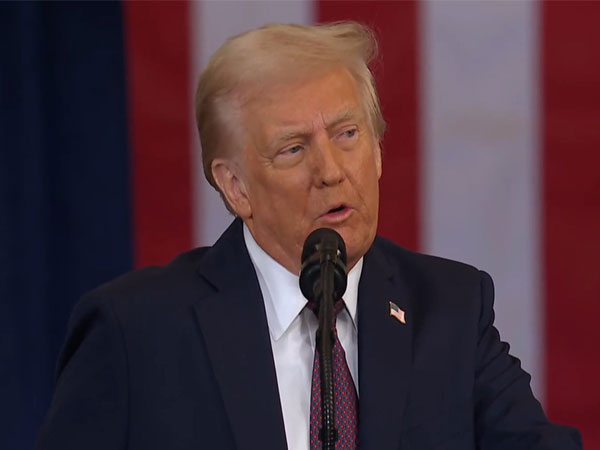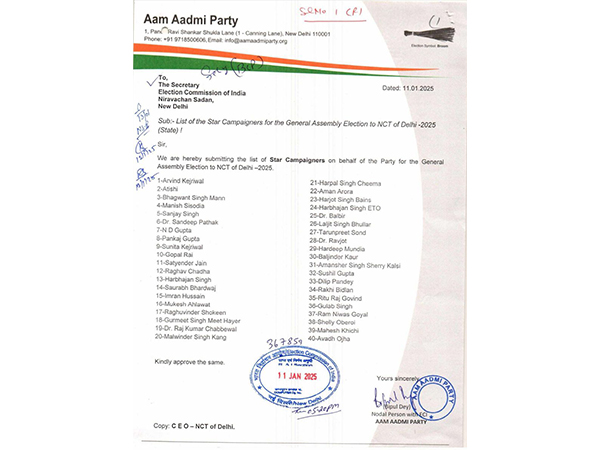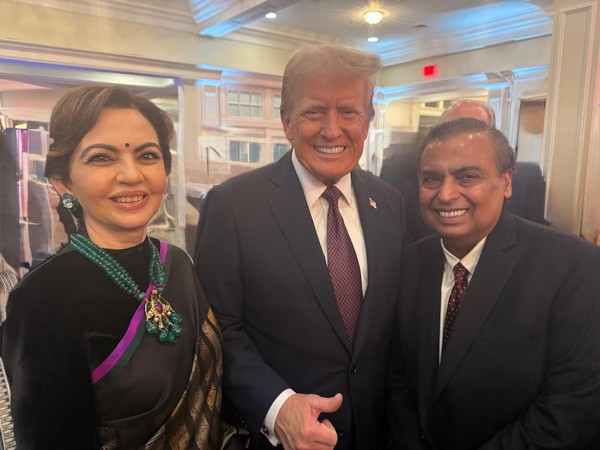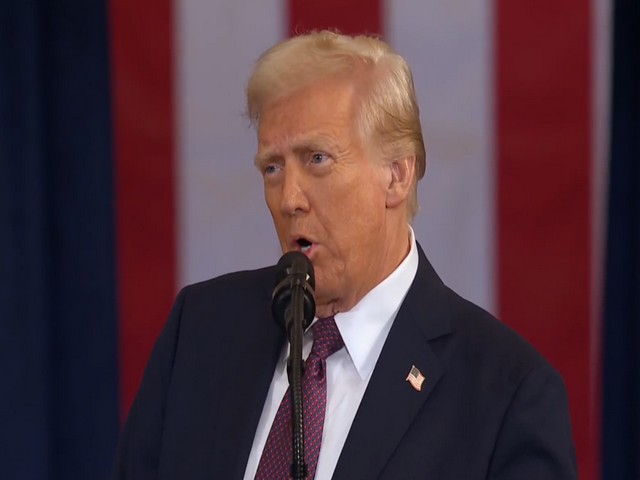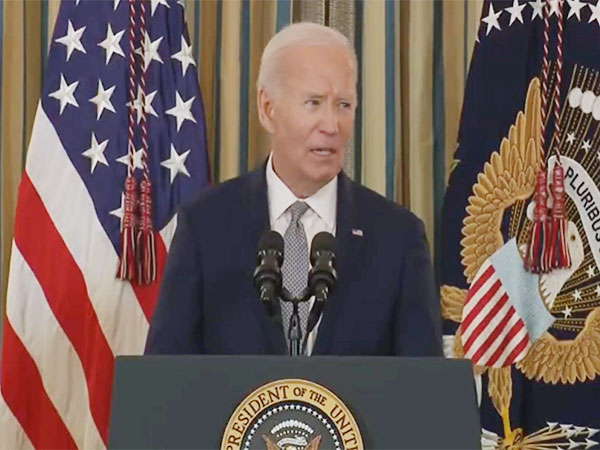Washington [US], August 3 (ANI): The US Justice Department filed a lawsuit against TikTok and its parent company, ByteDance on Friday, accusing them of failing to protect children‘s privacy on the popular social media app, as reported by Nikkei Asia.
This lawsuit is part of the Biden administration’s ongoing effort to address concerns surrounding TikTok‘s data practices and its implications for national security, Nikkei Asia reported.
The lawsuit alleges that TikTok violated the Children’s Online Privacy Protection Act (COPPA) by collecting personal information from users under 13 without parental consent. The Justice Department claims TikTok “knowingly permitted children to create regular TikTok accounts and collect and retain personal information from these users without parental consent,” according to Nikkei Asia.
Nikkei Asia further stated that TikTok, which has approximately 170 million users in the US, is facing additional pressure from a new law that would require ByteDance to divest TikTok‘s US assets by January 19, 2025, or face a ban. This lawsuit adds to TikTok‘s mounting legal troubles, reflecting heightened scrutiny of the platform’s data practices.
The Federal Trade Commission (FTC) has joined the lawsuit, seeking penalties that could amount to billions of dollars if TikTok is found liable for the alleged privacy violations.
FTC Chair Lina Khan stated, “TikTok knowingly and repeatedly violated kids’ privacy, threatening the safety of millions of children across the country.”
Nikkei Asia noted that the FTC is pursuing penalties of up to USD 51,744 per violation per day, potentially totalling billions if TikTok is found liable.
TikTok has responded to the allegations by disputing the claims, arguing that many of the concerns relate to past practices that are either factually incorrect or have already been addressed. “We are proud of our efforts to protect children, and we will continue to update and improve the platform,” TikTok said in a statement.
The lawsuit follows reports from Reuters in 2020 that investigated TikTok‘s compliance with a 2019 agreement aimed at protecting children‘s data. The company has also faced fines from the European Union and the UK for similar issues.
In related legislative developments, the US Senate recently passed a bill extending COPPA to cover teenagers up to age 17, banning targeted advertising to minors, and allowing parents and children to delete their information from social media platforms. The bill now awaits approval from the Republican-controlled House, which is on recess until September. (ANI)
US lawmakers highlight threats posed by TikTok due to its Chinese ownership

Washington, DC [US], August 4 (ANI): The members of the US-based Select Committee on the Chinese Communist Party (SCCCP) on Saturday, filed an amicus curiae brief against TikTok’s vs Garland case, urging the authorities to address the threat of Chinese ownership of the social media platform.
“Over 50 lawmakers file a bipartisan amicus brief in defence of the Protecting Americans from Foreign Adversary Controlled Applications Act in TikTok v Garland. The brief defends the act to address the threat of Chinese ownership of TikTok,” the SCCCP said in a post on X.
The US lawmakers, John Moolenaar and Raja Krishnamoorthi, headed the brief filing, underlined in the Protecting Americans from Foreign Adversary Controlled Applications Act (PAFACAA).
TikTok’s mother company, ByteDance, which belongs to China, currently faces PAFACAA in the US, which means it has to either divest itself from the platform (sell US operations of TikTok) or face a total ban as it has been alleged to have stolen the data of its 170 million US users.
The brief mentioned that it seeks to protect all Americans from foreign adversary-controlled applications that present a clear national security threat to the US.
According to the amicus curiae brief, “Congress determined that foreign adversary-controlled applications that present a clear and significant national security threat should not be permitted to access application stores or web hosting services in the United States.”
The brief further said that to stop foreign adversaries from targeting, surveilling, and conducting covert repression campaigns against the American people through social media and related applications, the Divestiture Act requires “companies controlled by the Democratic People’s Republic of North Korea, the People’s Republic of China, the Russian Federation, and the Islamic Republic of Iran to divest themselves of that control or face restrictions in the United States.”
The brief also alleged that China intends to use TikTok against the United States.
“The Divestiture Act is backed by extensive legislative factfinding demonstrating that foreign adversary nations seek to exploit applications including social media to target, surveil, and conduct other covert activities (including transnational repression) against the American people,” it stated.
Additionally, the SCCCP, in its brief, also pointed out that it and the Senate Select Committee on Intelligence have held numerous classified briefings and open hearings on the threat posed by the CCP generally and through TikTok specifically.
In these briefings, several national security and technology experts testified about the PRC’s technology ambitions.
The brief added that it also has testimony from the Director of the FBI on the national security threat posed by TikTok during its annual Worldwide Threats hearing.
A similar brief was also filed by the Foundation of Defence of Democracies (FDD) on Friday. The 28-page brief by the FDD details how TikTok’s current ownership structure has enabled the CCP to infiltrate the company and dictate the kinds of information it obtains from Americans and stores in China, thereby threatening US national security.
This data includes information about children, which is protected by federal law; viewers who watch LGBTQ+ material; and even driver’s licenses and other personal information of TikTok users, a press statement by the FDD said.
“Beyond TikTok’s surveilling Americans (including journalists), FDD shows the Court how Beijing uses the platform to manipulate the kinds of news and information users receive at the Chinese government’s behest, interfere in U.S. elections, and prepare for “cognitive combat” (psychological warfare) — reinforcing the argument that a forced sale is constitutional,” the statement added.
Notably, India was among the first countries to ban TikTok, citing ‘security concerns’. The Union government banned TikTok and several other Chinese apps in June 2020 over ‘national security concerns’. Before the ban, the app had about 150 million monthly active users in India.
Following this, Nepal also announced a ban on the China-owned video-sharing app TikTok, citing its negative efforts on ‘social harmony’.
Moreover, TikTok is already partially or completely banned in Australia, Belgium, Canada, Afghanistan, Denmark, the Netherlands, New Zealand and Norway, concerning the security issues with the video-sharing app. (ANI)





